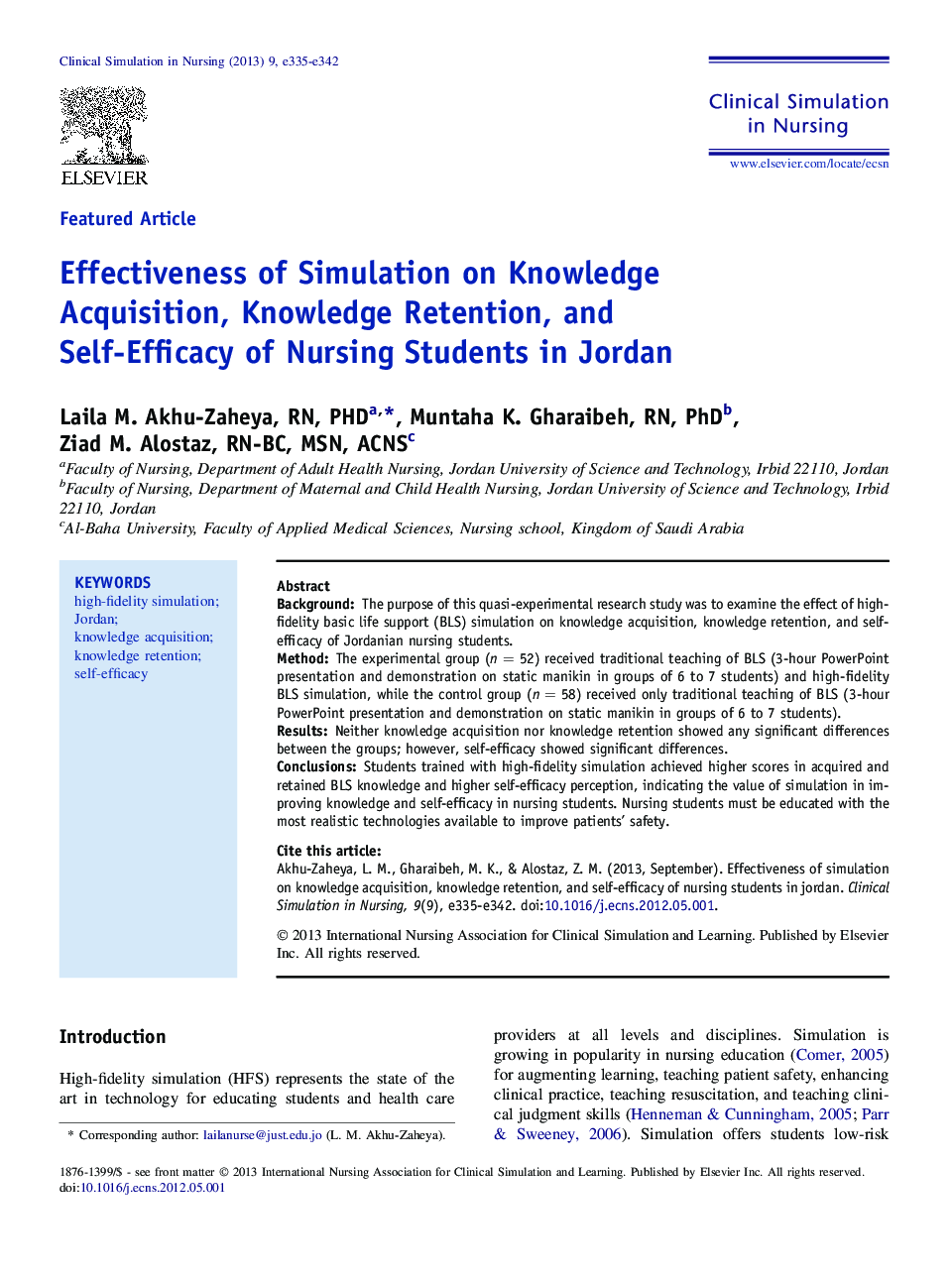| Article ID | Journal | Published Year | Pages | File Type |
|---|---|---|---|---|
| 2646506 | Clinical Simulation in Nursing | 2013 | 8 Pages |
BackgroundThe purpose of this quasi-experimental research study was to examine the effect of high-fidelity basic life support (BLS) simulation on knowledge acquisition, knowledge retention, and self-efficacy of Jordanian nursing students.MethodThe experimental group (n = 52) received traditional teaching of BLS (3-hour PowerPoint presentation and demonstration on static manikin in groups of 6 to 7 students) and high-fidelity BLS simulation, while the control group (n = 58) received only traditional teaching of BLS (3-hour PowerPoint presentation and demonstration on static manikin in groups of 6 to 7 students).ResultsNeither knowledge acquisition nor knowledge retention showed any significant differences between the groups; however, self-efficacy showed significant differences.ConclusionsStudents trained with high-fidelity simulation achieved higher scores in acquired and retained BLS knowledge and higher self-efficacy perception, indicating the value of simulation in improving knowledge and self-efficacy in nursing students. Nursing students must be educated with the most realistic technologies available to improve patients' safety.
